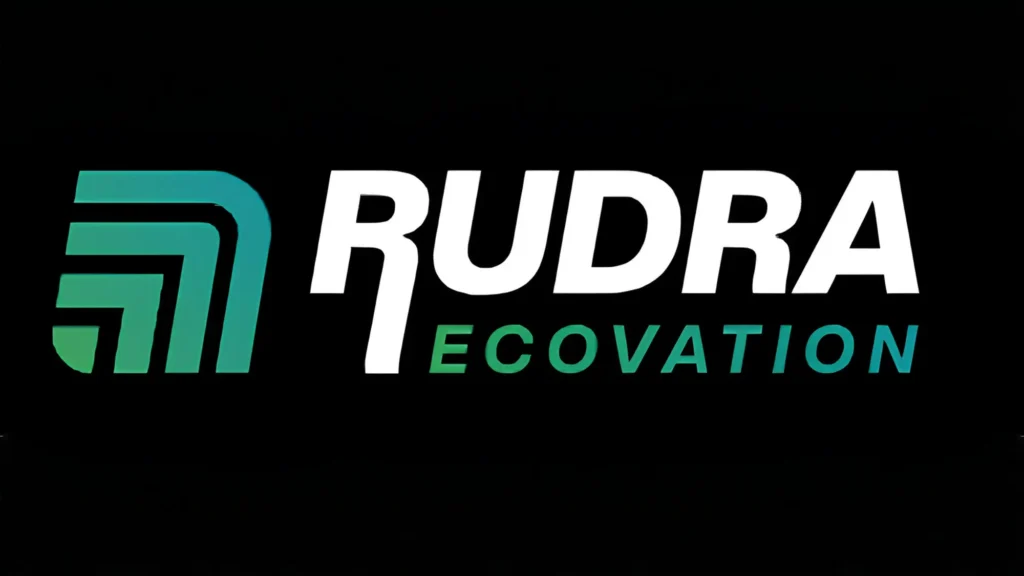Mumbai, September 2025 — As industries across the globe grapple with the challenge of reducing their carbon footprint, Rudra Ecovation is emerging as one of India’s leading voices in sustainable manufacturing. With its state-of-the-art facility dedicated to green manufacturing, the company is not only recycling plastic but also turning it into high-value consumer and industrial products.
By focusing on innovation, efficiency, and eco-friendly practices, Rudra Ecovation has positioned itself as a trailblazer in the circular economy, demonstrating that growth and sustainability can go hand in hand.
The Urgency of Green Manufacturing
India generates millions of tonnes of plastic waste each year, much of which ends up in landfills or oceans. The environmental toll is immense, making plastic recycling a national imperative.
Rudra Ecovation has recognized this urgency and built a model that emphasizes green manufacturing processes, converting discarded plastics into usable products like fibres, yarns, flakes, and even acoustic solutions. This transformation reduces the burden of waste while creating value for industries ranging from textiles to packaging.
Inside Rudra’s Advanced Plant

At the heart of Rudra Ecovation’s sustainability strategy lies its advanced recycling and processing plant. Designed with a focus on minimal environmental impact, the facility is equipped with modern technology for washing, shredding, flaking, and extrusion.
The plant’s workflow ensures that post-consumer plastic bottles and other waste materials are carefully collected, sorted, and transformed into rPET (recycled polyethylene terephthalate) flakes. These flakes are then used as the raw material for a wide range of applications.
The plant also adopts energy-efficient machinery and water-saving systems, ensuring that the process of recycling itself remains sustainable.
From Waste to Fibre: The Journey of rPET
One of the company’s most successful ventures has been its fibre and yarn production using rPET. The recycled fibres are spun into yarns that can be used in a variety of textile applications.
-
- Fibre Applications: Mattress fillings, insulation, and furniture padding.
-
- Yarn Applications: Clothing, home textiles, and industrial fabrics.
This shift from single-use plastic bottles to durable, high-quality textile products represents a true circular economy model, where waste is transformed into raw material for new industries.
Anaura: Sustainability in Everyday Living
Rudra Ecovation also markets products under its flagship brand Anaura, which focuses on home and lifestyle solutions. These include eco-friendly furnishings, acoustic panels, and fabrics that bring sustainability into everyday living.
By bridging the gap between recycling plants and consumer products, Anaura ensures that Rudra’s commitment to green manufacturing resonates directly with households. The brand’s emphasis on aesthetics and performance proves that sustainability can be both practical and stylish.
Commitment to ESG Principles
Environmental, Social, and Governance (ESG) values are at the core of Rudra Ecovation’s strategy. The company:
-
- Reduces Emissions: Through efficient recycling and energy-saving practices.
-
- Promotes Social Impact: By creating employment opportunities in collection and recycling networks.
-
- Ensures Transparency: With responsible reporting and compliance with global standards.
This approach not only strengthens investor confidence but also positions Rudra as a responsible corporate leader.
Scaling Up: India’s Role in the Circular Economy
India is at a crucial juncture in its sustainability journey. With government initiatives like Extended Producer Responsibility (EPR) and increased corporate accountability, companies such as Rudra Ecovation are playing a vital role in shaping the future.
By scaling its green manufacturing processes, Rudra contributes to:
-
- Reducing import dependence on virgin plastic.
-
- Lowering greenhouse gas emissions through recycling.
-
- Encouraging industries to adopt sustainable raw materials.
This positions India not just as a consumer of green technologies but also as a global supplier of sustainable solutions.
Challenges in Green Manufacturing
Despite its achievements, Rudra Ecovation faces challenges that are common to the recycling sector:
-
- Collection Infrastructure: Efficient waste collection remains fragmented in India.
-
- Consumer Awareness: Adoption of sustainable products is still limited outside urban centers.
-
- Global Competition: International players in rPET production are setting high benchmarks.
Yet, the company views these hurdles as opportunities to innovate further, invest in technology, and expand consumer outreach.
Conclusion
Rudra Ecovation’s story demonstrates the power of green manufacturing as a tool for tackling one of the world’s biggest environmental challenges — plastic waste. By combining cutting-edge technology with a deep commitment to sustainability, the company is showing how waste can be transformed into value, and how businesses can thrive while staying true to the planet.
As India pushes toward a greener future, companies like Rudra Ecovation will play a decisive role in creating an economy that is circular, responsible, and sustainable.
Disclaimer: This article is based on information available from public sources. It has not been reported by EQMint journalists. EQMint has compiled and presented the content for informational purposes only and does not guarantee its accuracy or completeness. Readers are advised to verify details independently before relying on them.




